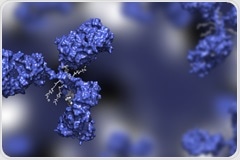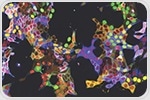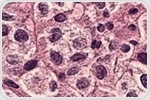
|
|
|
| |

|
|
| |
The latest drug discovery news from News Medical |
|
|
|
 | | |
 Finding a false-positive culprit Finding a false-positive culprit
High-throughput screening can involve testing thousands to millions of compounds, seeking rare hits that bind to target proteins. Validating these hits is crucial to avoid false positives, which can lead to dead ends in drug development. This article discusses a common source of false positives and the application of light scattering as a rapid pre-screening solution.
| |
|
|
| |  | | |  For most human proteins, there are no small molecules known to bind them chemically (so called "ligands"). Ligands frequently represent important starting points for drug development but this knowledge gap critically hampers the development of novel medicines. For most human proteins, there are no small molecules known to bind them chemically (so called "ligands"). Ligands frequently represent important starting points for drug development but this knowledge gap critically hampers the development of novel medicines. | | | | |  Biomarkers are molecules that indicate normal or abnormal processes in relation to conditions or diseases and provide valuable information in medical research and diagnosis. Therefore, methods are greatly needed to identify new biomarkers and detect existing ones with high specificity and selectivity. Biomarkers are molecules that indicate normal or abnormal processes in relation to conditions or diseases and provide valuable information in medical research and diagnosis. Therefore, methods are greatly needed to identify new biomarkers and detect existing ones with high specificity and selectivity. | | | | |  In a recent study published in The Lancet Digital Health, researchers examined the state of randomized controlled trials (RCTs) for artificial intelligence (AI) algorithms in clinical practice. In a recent study published in The Lancet Digital Health, researchers examined the state of randomized controlled trials (RCTs) for artificial intelligence (AI) algorithms in clinical practice. | | | | |  Exact protein observation in cells is crucial for many scientific fields, but it has proven to be a difficult technical task, particularly in living cells where each protein needs to have its fluorescent label applied separately. Exact protein observation in cells is crucial for many scientific fields, but it has proven to be a difficult technical task, particularly in living cells where each protein needs to have its fluorescent label applied separately. | | | | |  Researchers at UNC Lineberger Comprehensive Cancer Center, after decades of research efforts, have developed a mouse model of Kaposi sarcoma that could be key to the development of new drugs to treat the disease. Researchers at UNC Lineberger Comprehensive Cancer Center, after decades of research efforts, have developed a mouse model of Kaposi sarcoma that could be key to the development of new drugs to treat the disease. | | | | |  A recent study in Nature Medicine evaluated the efficacy of prasinezumab, a monoclonal antibody, in slowing the progression of motor symptoms in Parkinson’s disease patients with rapidly progressing forms, using phase II clinical trial data. A recent study in Nature Medicine evaluated the efficacy of prasinezumab, a monoclonal antibody, in slowing the progression of motor symptoms in Parkinson’s disease patients with rapidly progressing forms, using phase II clinical trial data. | | | | |  Researchers at Texas Children’s Cancer Center and the Center for Cell and Gene Therapy at Baylor College of Medicine, Texas Children’s Hospital and Houston Methodist published results of a phase I clinical trial of a novel immunotherapy for high-risk sarcomas in the journal Nature Cancer. Researchers at Texas Children’s Cancer Center and the Center for Cell and Gene Therapy at Baylor College of Medicine, Texas Children’s Hospital and Houston Methodist published results of a phase I clinical trial of a novel immunotherapy for high-risk sarcomas in the journal Nature Cancer. | |
|
|
| |  | | | How would you rate today's newsletter?
| |
|
|
|
|
|
|
|